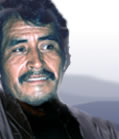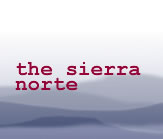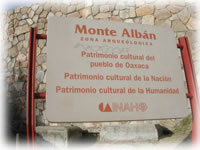 |
 |
||
 |
|||
|
RELATED THEMES education festivals social institutions social change spiritual beliefs OTHER LOCAL THEMES BACKGROUND |
identity
The Zapotec language is seen as a key feature of local identity. A narrator regrets how speaking Zapotec was actively discouraged when they were at school: "Maybe the hardest thing in the primary school is that they didn't let you speak Zapoteco, because they punished us and our fathers or our mothers if they heard us speak Zapoteco. they drew attention to us and they sent for our parents and gave them a punishment too. And that how it was and we lost the language. I still understand [the language] because, thankfully, I've maintained a close relation with the village and I listen to what the people say in Zapoteco. I understand them perfectly well but now I can't answer them in Zapoteco, no! It's possibly the most bitter experience I've had because now I know the importance of the language" (Mexico 12). The same narrator (Mexico 12) talks of two types of education, official and community: "Education has had a lot of influence on this.They taught us how to work but they also taught us that Spanish [language] is the most important, that to get ahead in the big cities it was the most important..." He believes that community education is the stronger, providing protection against the problems of modern life: ".there are two types of education and maybe the strongest is that of the community, because that is where one lives"."In the case of Yavesía, for example, it looks like the community can have alternatives to be able to live well, there aren't any problems of drug addiction, of alcoholism, there isn't much television or radio, and one must comply with the cargos (unpaid community positions), the asamblea (community parliament), the orders, and with the tequio (obligatory unpaid community work). there's an authority which one must respect because it was oneself who nominated it." He has travelled and experienced the other side of this local identity - the effect it has on other Mexicans who, it seems, make it difficult for people from ethnic groups to integrate: ".it happened to me when I arrived in Mexico City to enroll in secondary school, for example . you take your birth certificate and your certificate for the sixth grade of primary school and they tell you, no, well, he's from the provinces, he's from Oaxaca [state].They always give preference to those that live there, in Mexico City, and you go in last, you are on the waiting list. They take you on at the end if there's room.The preference is always for those who come from the big cities. They don't say it but show it with their actions" (Mexico 12). He feels he came up against the image many of his countrymen have of people from Oaxaca: "I was in the north for a while, in Tijuana, Mexicali - the labour from Oaxaca in the agricultural fields is recognised and accepted, but that is for working in the fields, bending one's back in the long furrows in the valley of San Quitín, in Sonora. Because the people from Oaxaca know.how to work in the field, and this is recognised and accepted." (Mexico 12). Community members certainly feel a strong sense of pride in community customs ("usos y costumbres") as described by this man from Ixtlán (Mexico 15): "One of the things valuable to the community is its customs, and own style of self-governing. This is the foundation for the strength of the village, if we didn't have these well established customs, we wouldn't have our self-identity. I think that it's our customs that make us different from other communities, as much within the state as outside." Another narrator (Mexico 14) expresses the pride he takes in service to the community: ".Yavesía is unique in how we live, both the economic and cultural aspects, it's different to other communities. So, well that is the feeling I've got for the village, so, with great honour I fight for the dignity of the community..." Several narrators stress how each community has distinctive traditions, such as particular ways of celebrating festivals, which draw back those who migrated away for work. Yet despite such continuing pride and sense of community identity, and the fact that the Zapotec represent the largest ethnic group in Oaxaca, concerns about a decline in indigenous customs surface again and again: ".our practices and customs are vanishing, very little is left. For example, [Zapotec] is no longer in use, because it was lost totally. It was lost because all the young people here no longer know it. Well they hear it.but they no longer understand it, that's how it is." (Mexico 27). However, although the perception of several older narrators is that use of the Zapotec language has declined significantly during their lifetimes, in fact several young narrators conducted their interviews in Zapoteco. It also seems that Yavesía and other Sierra communities are making efforts to provide for teaching in both Spanish and Zapoteco. Indeed, taken overall the testimonies suggest a possible revival of Zapotec cultural identity, and with that, the language. quotes about identity"Today the cultures of the indigenous villages are acquiring a new value, like the culture we have here in Yavesía, but many things have been lost, haven't they? .education has had a lot of good and bad influence on many things. ...there are good and bad things that can be got out of education but it has had a lot of influence on the loss of the culture..." "Now the traditions are being forgotten. The older people still carry on like the forefathers did, but the young people have their own way and.it's not important to them. Now there's studying and they all know how to read and write and so.they don't take any notice and they don't obey what the older people say. Before, there weren't schools, there wasn't anyone who could read, and in that way [people] did as the elders said. [Before] they punished [those who ignored community traditions]; they fined them." ".as the women say, my umbilical cord is buried in Yavesía. And I've got my assignments there, I've got direct connections with the community, with my community of origin..." ".as father used to tell me, they've defended the territory of Yavesía ever since the [time of our] forefathers, since the Revolution [of 1910]. Well, that's what they did; so, well if a community has defended itself for many years, to let it be put down at this time - just when one has the opportunity to defend it - well, that's why I put my heart into upholding the situation." "When [my relative] Camerino went to the school, he spoke.[Zapotec] language very well, because his grandfather and his father did not teach him to speak Castillano (Spanish).and the teacher removed him from the class and she told him: "Look, do not speak [Zapoteco], because. I do not understand you.and your classmates do not understand you either. No, you can not speak the language.' And she turned him out, poor Camerino, because he spoke in the language." |
|
 When speaking of institutions with which they identify, the narrators talk of their communities and their ethnic group, and of Oaxaca, rather than their country. It seems that a sense of belonging to their Zapotec community comes before Mexican identity, reflecting their indigenous roots - which, of course, long pre-dated creation of the Republic. The Zapotec civilisation stands out in Mexico's rich cultural history as one of the most significant. One man from Tiltepec (Mexico 3), who resents the poor management of local resources by
When speaking of institutions with which they identify, the narrators talk of their communities and their ethnic group, and of Oaxaca, rather than their country. It seems that a sense of belonging to their Zapotec community comes before Mexican identity, reflecting their indigenous roots - which, of course, long pre-dated creation of the Republic. The Zapotec civilisation stands out in Mexico's rich cultural history as one of the most significant. One man from Tiltepec (Mexico 3), who resents the poor management of local resources by